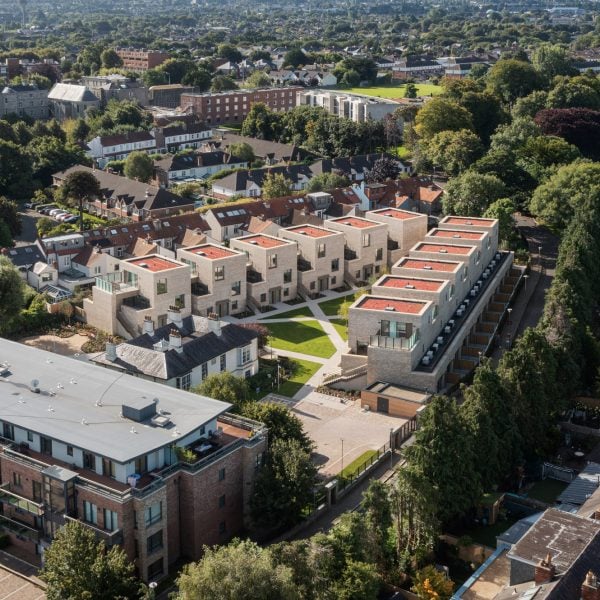Architecture studio Shay Cleary Architects has completed a residential complex comprising a series of low-rise apartments and duplexes organised around a triangular courtyard in Dublin.
Drawing on its research into sustainable urban housing typologies, The Residences at Sanford Lodge development by Shay Cleary Architects forms the “first completed low-rise, high-density residential development in Ireland”, according to the studio.
The project has also been shortlisted in the housing category for this year’s Dezeen Awards.
“Building upon our long term research projects into high-quality, low-rise, high-density residential design, the scheme provides high amenity residential units of generous size, with ample private open terraces and gardens and superb access to sunlight and daylight with double aspect units throughout,” studio director John Dobbin told Dezeen.
“This form of housing provides densities comparable to apartment development, but does so through own-door homes, garden courtyards, and generous terraces, deliverable in a more economical, viable format.”
The 36 residences are arranged into two rows of terraces either side of the central courtyard – with each unit composed of two one-bedroom ground floor apartments topped with a two-bedroom duplex.
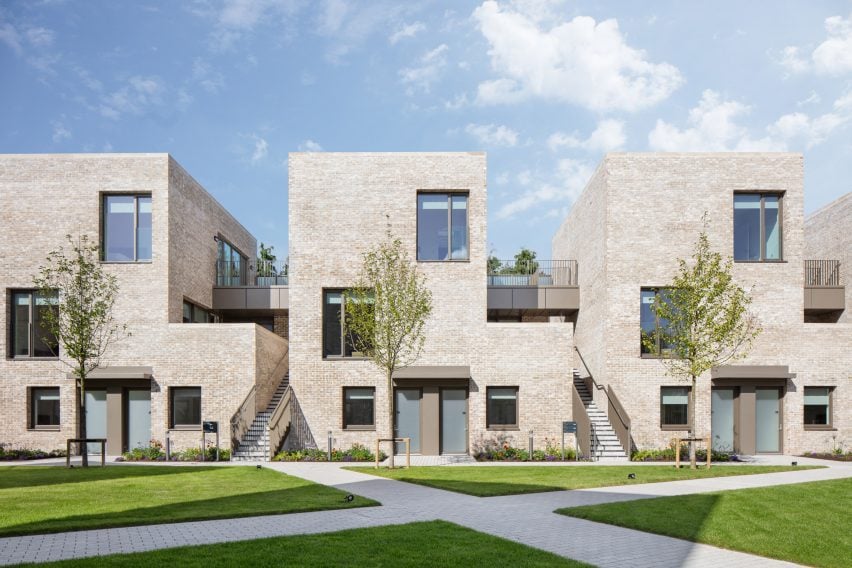
Built from brick to match the neighbouring buildings, each of the units are defined by blocky forms with structural cutouts designed to host external terraces.
At ground level, paved walkways provide circulation across the site. Fronting each of the units are two doors framed with bronze aluminium that provide access to the ground-floor apartments.
Inside, the apartments are fronted with bedroom spaces where openings overlook the shared courtyard, while its rear hosts an open-plan living, kitchen and dining room where sliding doors lead out to a private garden.
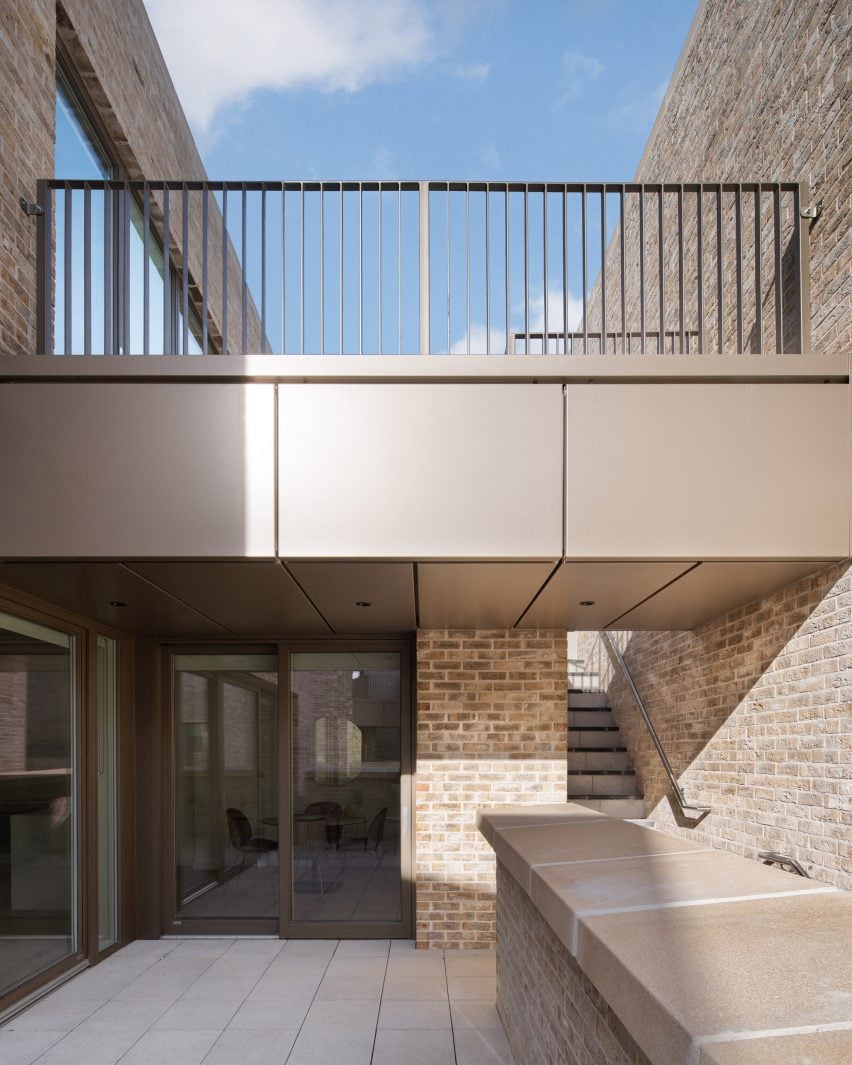
An external staircase accessed from the building front provides a route up to the first-floor duplex, where an outdoor terrace serves as an entrance point to the home.
Sliding doors wrap around the terrace and open up to the open-plan kitchen and dining room and adjacent living space.
Both an external staircase leading up from the first-floor terrace and an internal staircase provide access to the home’s upper floor, where two en-suite bedrooms share access to an upper-level terrace.
Simple white walls and wooden flooring are repeated throughout the apartments.
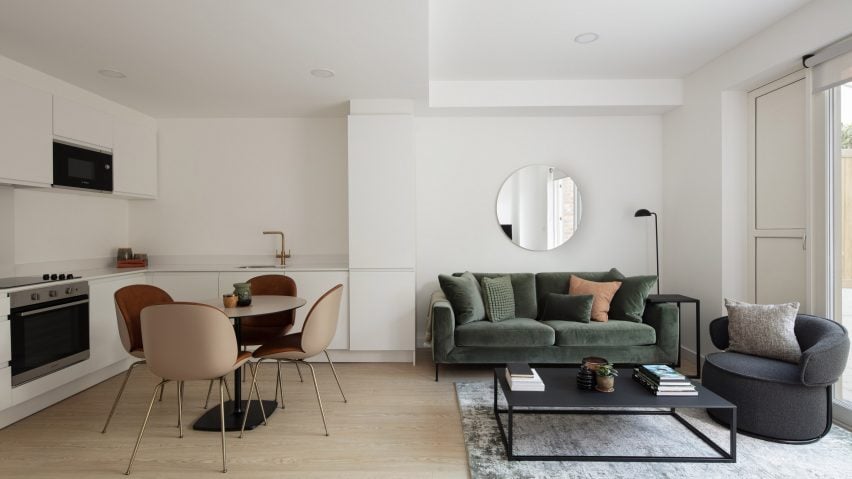
As well as integrating its research into sustainable low-rise housing typologies into the design, Shay Cleary Architects also included low-energy strategies that enable a minimum of 20 per cent of the building’s primary energy to be delivered by renewable energy sources.
“We have embedded sustainability in the concept, as this form of housing provides densities comparable to apartment development, but does so through the medium of house building, resulting in better land usage, less energy and carbon-intensive construction methods, and is deliverable in a more economical, sustainable format,” Dobbin said.
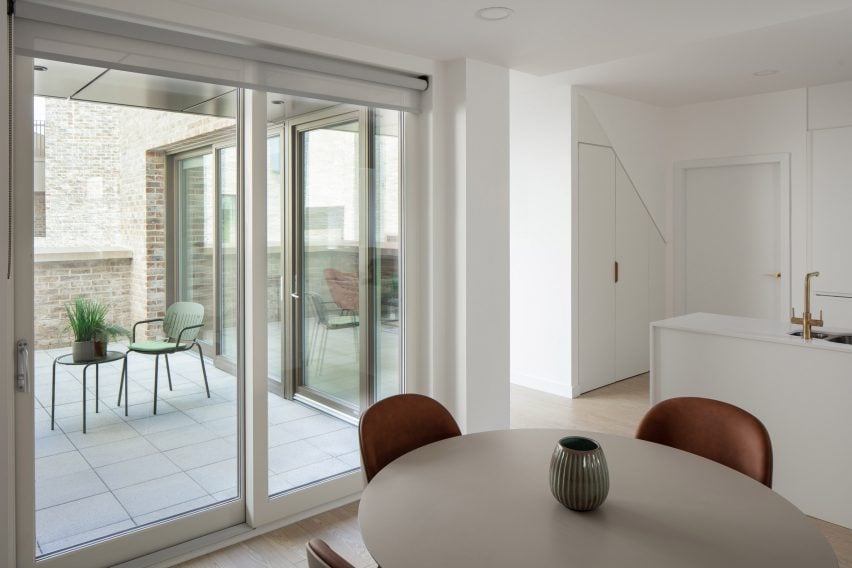
Shay Cleary Architects is an architecture studio established in 1987, with offices in London and Dublin.
Other housing developments recently featured on Dezeen include a residential complex that combines three housing typologies in Leuven, Belgium, and a series of apartment buildings in London that draw on Scandinavian principles.
The photography is by Jamie Hackett Photography.
